Keywords: Disability Services
-

RELIGION
- Frank Brennan
- 08 May 2017
1 Comment
Our Church is presently a strained, outdated social institution with an exclusively male hierarchy and clergy. But it is also the privileged locus for us to be called to the banquet of the Lord sharing theology and sacrament which have sustained the hearts and minds of similar pilgrims for two millennia. Thank God for Pope Francis who is showing us the way, helping us to find meaning in our changing and chaotic world, putting a fresh spring in the step of all those Catholics holding in tension the prophetic and the practical, the theological and the humanist, the tradition and the contemporary reality.
READ MORE
-
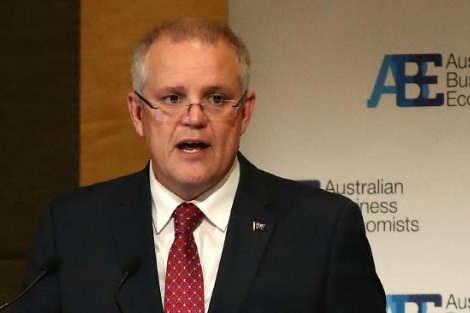
AUSTRALIA
- Frank Brennan
- 07 May 2017
7 Comments
Part of the cost of the double dissolution election last July has been the creation of a Senate with the largest, most diverse group of crossbenchers ever. This will make the passage of any new contested Budget measures difficult, particularly given the Prime Minister’s vulnerability on his right flank, and the Labor Party's propensity to mimic the Opposition tactics adopted previously by Tony Abbott. The government needs to create a clear narrative as to how it will achieve equitable and sustainable growth through this Budget.
READ MORE 
-
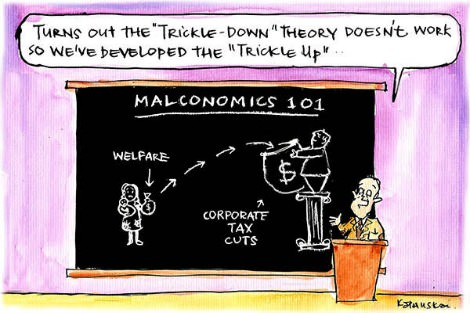
AUSTRALIA
- Frank Brennan
- 10 April 2017
16 Comments
In an age of 'budget repair', social policy risks becoming just a sidebar to economic policy which is a contest of ideas about how best to grow the size of the pie thereby providing a slice for 'the deserving poor' without having to redistribute too much of the pie, while 'the undeserving poor' drop off the edge as they would have anyway. For those of us schooled in Catholic social teaching, the so-called 'undeserving poor' are the litmus test of our commitment to the human dignity of all persons.
READ MORE 
-

AUSTRALIA
- Jack Maxwell
- 23 January 2017
25 Comments
Two issues can be dealt with shortly. First, ministers of religion must be free to solemnise marriages in accordance with their beliefs. Second, there is no basis for extending a similar concession to marriage celebrants. The case of commercial service providers is more complex. Many argue that caterers, florists, reception centres and so on should be free to refuse to participate in same-sex weddings, on the basis of their religious beliefs. The case for the commercial exemption is unconvincing.
READ MORE 
-

AUSTRALIA
- Fatima Measham
- 27 October 2016
7 Comments
Unless you have lived elsewhere, where taxes and rates rarely manifest as a tangible and permanent benefit, it is easy to take councils for granted. I grew up in a town where potholes are forever, healthcare is ad hoc and libraries are private. The things that I see my local council do as a matter of routine are wild luxuries in other places around the world. Such competencies arguably measure the health of a democracy - it means that most of the money has not been lost to corruption and fraud.
READ MORE 
-
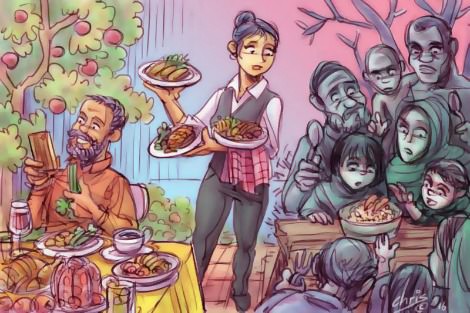
AUSTRALIA
- Julie Edwards
- 17 October 2016
17 Comments
One of the most misused passages of Christian scripture tells us we shall always have the poor with us. It is often repeated by those who are not poor in order to dismiss any project that involves public expenditure or private generosity to people who are poor. When we do not focus on the good or bad conscience of the observer but on the lives of the people who are poor, we can see that the statement is not a justification for a modern society that allows people to live in poverty. It is an indictment.
READ MORE 
-
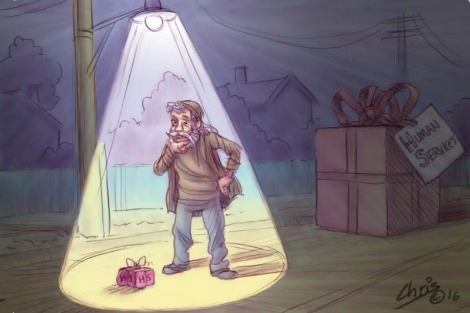
AUSTRALIA
- Roland Manderson
- 12 August 2016
14 Comments
There is a joke about a man looking for a coin under a streetlight: he had dropped it elsewhere, in the dark, but was looking under the streetlight because he could see more clearly there. In the same way, the thinking behind the Productivity Commission inquiry into increasing competition, contestability and informed user choice in human services is fundamentally flawed. The complexity and interconnectedness of human services is too challenging for market economics to properly address.
READ MORE 
-

AUSTRALIA
- Marcelle Mogg
- 05 May 2016
18 Comments
Even the International Monetary Fund recognises that the best way to grow an economy is to reduce the divide between rich and poor, ensuring that all people have a chance to participate in the social and economic life of a country. The Coalition government remains resolutely opposed to this growing body of evidence, continuing to rely on economic structures that entrench disadvantage, then blame the poor for their fate. The Budget provides tax cuts to the rich and service cuts to the rest.
READ MORE 
-
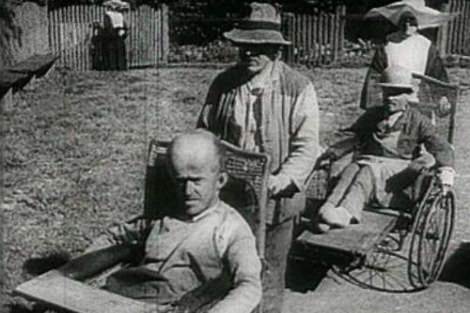
AUSTRALIA
- Justin Glyn
- 29 March 2016
9 Comments
People with disabilities have lived on society's margins since biblical times. In 1939, extending eugenics and sterilisation campaigns developed in the US in the early 20th century, Hitler authorised the vernichtung lebensunwerten Lebens ('the destruction of lives unworthy of life'). Unfortunately, not only has discrimination not been eradicated but those of us with disabilities, much like indigenous people, the poor, refugees and others with limited voice in society, continue to be seen as soft touches.
READ MORE 
-
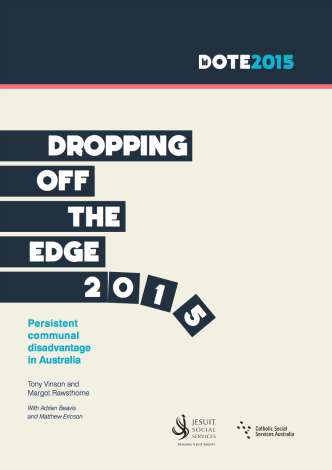
AUSTRALIA
- Andrew Hamilton
- 23 July 2015
9 Comments
It's like being trapped. Dropping out of school will be magnified if your parents are unemployed and you have come under the juvenile justice system. If you live in particular areas you will find it difficult to overcome the effects of disadvantage. The report Dropping off the Edge 2015 stresses the importance of examining the interlocking of the aspects of disadvantage.
READ MORE 
-

AUSTRALIA
- Matthew Dimmock
- 16 June 2015
7 Comments
Of all the vulnerable groups in Australia today, people with intellectual disability are surely up there with the most vulnerable and susceptible to abuse and exploitation. They are paid as low as 99 cents per hour. The Human Rights Commission has granted the Federal Government's request to delay reform for a further four months because the government says the the ending of discrimination must proceed in an 'orderly manner...to provide reassurance'.
READ MORE 
-

- Elenie Poulos
- 02 April 2015
4 Comments
Humans have always pursued wealth and the power it affords, but only relatively recently has the world itself become organised around the service of that wealth. The systems and structures which define the way our world works are financial, geared to the making of profit. They are global and buoyed by governments whose domestic and foreign policies ensure their support. ‘Social good’ and the ‘common good’ are assumed to be economic neoliberalism, and what’s in the ‘public interest’ is whatever advances the neoliberal economic agenda.
READ MORE